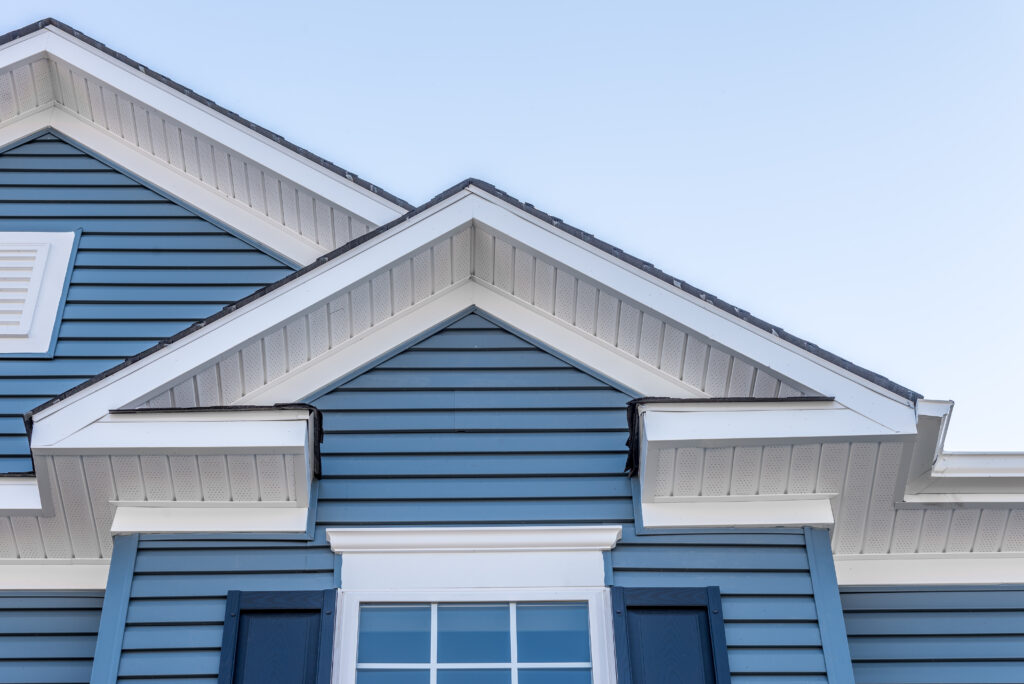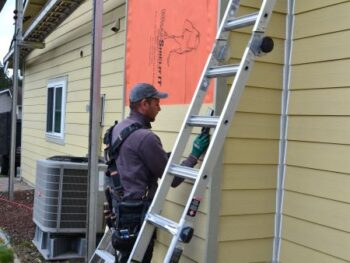Morris Siding Contractor for Beautiful and Long-Lasting Exterior Makeovers
Morris Siding Contractor for Beautiful and Long-Lasting Exterior Makeovers
Blog Article
The Important Guide to the Various Sorts Of Siding and Their Distinct Advantages
In the realm of home improvement, choosing the ideal home siding is a crucial choice that influences both aesthetic appeal and practical performance. With so many options to take into consideration, which siding material truly stands out for your details task?
Timber Exterior Siding
Timber home siding, a popular selection for property outsides, provides a timeless visual that incorporates natural appeal with architectural honesty. This exterior siding product is readily available in various designs, including clapboard, tiles, and board-and-batten, permitting property owners to customize their façade to match their layout choices. Wood home siding is typically crafted from sturdy species such as cedar, redwood, or pine, which are recognized for their durability and ability to endure environmental stressors.
One of the key advantages of wood house siding is its superb insulation residential or commercial properties, which can add to energy performance and lower heating expenses. Additionally, timber siding is eco-friendly, making it an ecologically friendly choice when sourced sustainably. Normal upkeep, consisting of paint or staining, can extend its life expectancy and enhance its look, permitting house owners to protect the natural charm of the wood.
Nonetheless, possible downsides consist of sensitivity to bugs, rot, and climate damages, requiring adequate therapy and maintenance - morris siding contractor. Despite these issues, when appropriately looked after, timber exterior siding can supply a attractive and durable solution that enhances the character of a home while providing a warm, inviting atmosphere

Vinyl Exterior Siding
Vinyl exterior siding has actually become a leading selection for homeowners seeking a low-maintenance outside alternative that incorporates durability and affordability. This functional product is crafted from polyvinyl chloride (PVC), making it resistant to numerous climate condition, including wetness and UV rays. As a result, vinyl siding does not warp, rot, or fade, ensuring resilient visual appeal.
Among the key advantages of plastic siding is its substantial array of shades and styles, allowing house owners to achieve the desired seek their residential property without the requirement for frequent repainting. Additionally, plastic home siding is very easy to install, which can dramatically lower labor costs during building or improvement tasks.
Plastic siding likewise adds to energy effectiveness. Many options function insulation backing, which boosts thermal efficiency, helping to keep comfortable interior temperatures and potentially lowering energy bills. Additionally, its smooth surface facilitates easy cleaning, requiring just regular washing with a yard hose to get rid of dirt and particles.
Fiber Concrete Siding
Fiber cement house siding has actually gotten traction amongst building contractors and home owners alike as a result of its remarkable combination of durability and aesthetic adaptability. Made up of a mixture of sand, cement, and cellulose fibers, this siding choice is engineered to endure severe weather, consisting of high winds, heavy wikipedia reference rainfall, and temperature level variations, making it a lasting selection for household outsides.

Among the key advantages of fiber concrete house siding is its resistance to parasites, such as termites, and its non-combustible nature, offering improved fire safety. morris siding contractor. Additionally, it is readily available in a broad selection of styles, textures, and colors, enabling homeowners to achieve their preferred aesthetic without sacrificing blog performance
Another benefit is its low maintenance requirements; fiber cement exterior siding usually calls for paint or discoloration every 5-10 years, which is less constant than other materials. In addition, its longevity contributes to a lower total expense of ownership, as it lowers the need for constant repairs or substitutes.
Inevitably, fiber concrete house siding represents an outstanding financial investment for those seeking a resilient, attractive, and versatile outside option, integrating both form and function to boost the home's curb allure.
Metal Siding
The attraction of metal exterior siding hinges on its durable toughness and modern-day aesthetic allure, making it a preferred selection for modern style. Offered in materials such as aluminum and steel, steel exterior siding provides a series of coatings and shades, enabling home owners to accomplish an individualized look that complements their design vision.

Energy effectiveness is one more considerable benefit, as lots of steel house siding items are made with insulation alternatives that aid manage indoor temperatures. This can result in decreased energy costs over time. Additionally, steel siding is commonly recyclable, making it an eco pleasant option for sustainability-minded house owners.
The setup process for steel house siding can be reasonably uncomplicated, leading to a quicker turnaround time for building and construction projects. On the whole, steel siding combines functionality and design, making it a sensible choice for those seeking a visually enticing and long-lasting exterior coating.
Brick and Stone House Siding
Brick and stone siding attracts attention as a classic option that enhances the visual charm of any kind of home. Understood for their toughness and low upkeep, these materials Learn More Here provide a remarkable return on financial investment while raising the property's aesthetic charm. Available in different colors, structures, and patterns, brick and stone can be customized to fit diverse building styles, from traditional to contemporary.
Among the key advantages of block and stone home siding is their power efficiency. Both materials have all-natural insulating residential properties that help control interior temperature levels, potentially minimizing home heating and air conditioning costs. Additionally, they use premium fire resistance compared to other home siding alternatives, adding to boosted safety.
Another benefit is their durability. Block and rock can last for years, usually requiring minimal upkeep beyond occasional cleaning. Unlike wood siding, they are resistant to pests and rot, guaranteeing a lasting exterior that endures the aspects.
Verdict
In summary, the choice of house siding dramatically affects a home's aesthetic allure, energy performance, and maintenance demands. Each type of siding-- whether timber, vinyl, fiber concrete, brick, or metal and rock-- provides unique benefits customized to various homeowner choices and ecological conditions.
One of the key benefits of timber siding is its exceptional insulation properties, which can add to energy effectiveness and reduced heating expenses. In addition, wood home siding is biodegradable, making it an ecologically friendly alternative when sourced sustainably.One of the primary benefits of metal home siding is its resistance to various environmental aspects.Power efficiency is one more considerable advantage, as numerous steel house siding products are developed with insulation choices that aid regulate indoor temperature levels. Each kind of siding-- whether wood, vinyl, fiber cement, steel, or brick and rock-- offers distinct benefits tailored to different home owner preferences and environmental conditions.
Report this page